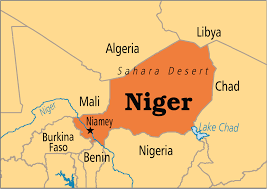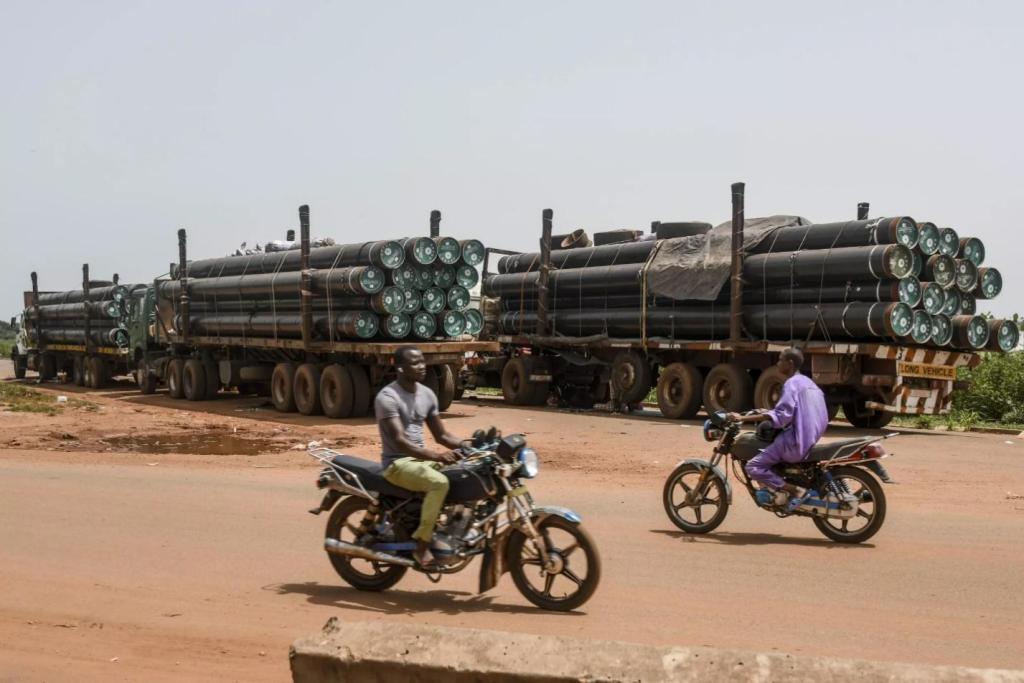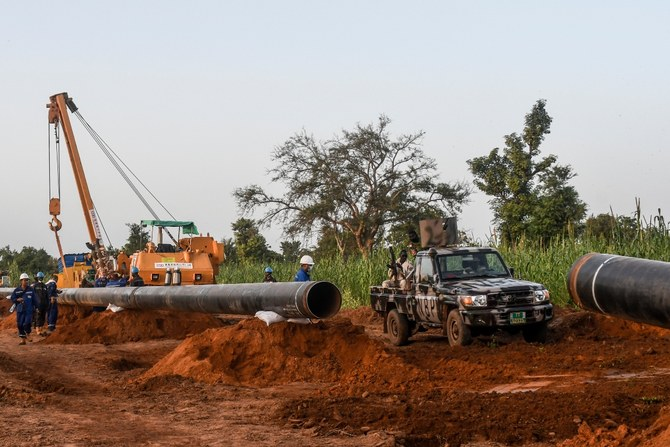Niger Oil and Gas Pipeline Projects: Fueling Economic Growth and Regional Integration
作者:电子科技大学西非研究中心团队;执笔人:Koffi Dumor(电子科技大学西非研究中心团队成员);译者:杨永星(公共管理学院);校对:罗爱玲(公共管理学院);整理:罗爱玲、孟雅琪(公共管理学院);供稿:电子科技大学西非研究中心团队。
Niger, a landlocked country in West Africa, is poised to harness its considerable potential in the oil and gas sector. This endeavor is being facilitated by a series of ambitious pipeline projects aimed at efficiently transporting hydrocarbons. These pipelines not only promise to revolutionize Niger's energy landscape but also hold the potential to bolster regional economic integration. This comprehensive overview delves into the key oil and gas pipeline projects in Niger, shedding light on their significance, current status, and the broader impact they are expected to have on the region.

(Source: https://ngara.org/niger/attachment/niger-map/)
The Niger-Benin Pipeline: A Gateway to Global Markets
The Niger-Benin Pipeline stands as a monumental testament to the vision and collaborative efforts of the governments of Niger and Benin. Stretching over approximately 2,000 kilometers, this ambitious infrastructure project is designed to connect Niger's oil-rich Agadem block to the international market, with the bustling port of Cotonou in Benin serving as the crucial gateway. Its significance in the transportation of crude oil cannot be overstated, as it positions Niger as a formidable player in the global energy arena. In this section, we delve into the intricate details and the transformative potential of the Niger-Benin Pipeline, shedding light on its capacity, operators, and current status as of the last update in September 2021. This pipeline represents more than just a conduit for hydrocarbons; it is a conduit for progress, economic growth, and regional integration.

(Source: https://www.france24.com/en/live-news/20221013-africa-s-longest-oil-pipeline-takes-shape-in-niger)
The completion of the Niger-Benin Pipeline signifies far more than the physical connection of the two nations. It is a catalyst for economic growth, job creation, and infrastructural development. Communities along the pipeline route stand to benefit from increased economic activity, while Niger's position in the global energy market promises enhanced fiscal stability and investment opportunities.
Beyond its national impact, the pipeline fosters regional integration. By providing a direct link between Niger's oil reserves and the international market through the port of Cotonou, the project strengthens economic ties between Niger and Benin. This integration sets the stage for further collaboration in energy, trade, and infrastructure development.
Environmental Considerations and Community Engagement
Each of these pipeline projects undergoes rigorous environmental impact assessments to ensure minimal disruption to local ecosystems and communities. Measures are put in place to mitigate potential environmental risks, such as habitat preservation, spill response plans, and adherence to international environmental standards.
Engagement with local communities is a cornerstone of these projects. Job creation, skills development, and infrastructure improvements are integral components of the benefits these projects bring to the regions they traverse. Additionally, community feedback and concerns are actively sought and addressed to ensure the projects align with local needs and aspirations.
Challenges and Mitigation Strategies
The pipelines traverse varied terrains, including deserts, savannahs, and urban areas. Technical challenges include extreme weather conditions, geological complexities, and engineering feats. Rigorous planning, advanced technology, and contingency measures are in place to address these challenges.
The pipelines also traverse multiple countries, each with its own geopolitical dynamics. Cooperation and agreements between governments, as well as diplomatic efforts, are crucial to ensuring the pipelines operate smoothly and sustainably.

(Source: https://www.arabnews.com/node/2361411/world)
The economic viability of these projects relies on factors such as global oil and gas prices, regional demand, and production costs. Continuous market analysis and adaptability in project planning are essential to ensure the projects remain economically sustainable.
The completion of these pipeline projects will not only transform Niger's energy landscape but also have ripple effects on a global scale. They contribute to regional stability, economic growth, and energy security. Furthermore, they open avenues for international collaboration, potentially paving the way for future cross-border energy initiatives.
As these projects progress, it is crucial to remain attuned to developments, potential challenges, and opportunities that may arise. Niger's oil and gas pipeline projects are emblematic of the transformative power of strategic infrastructure, and their success is poised to leave a lasting legacy on the socioeconomic and geopolitical landscape of the entire West African region.
The Niger-Benin Pipeline transcends its physical dimensions; it represents a shared vision of prosperity, sustainable development, and regional unity. As it advances towards completion, the project is poised to redefine the energy landscape of Niger and bolster its position in the global market. With each kilometer of pipeline laid, a new chapter in the economic and social development of the region is written, leaving an indelible mark on the future of Niger and its neighboring nations.
Reference:
Umar, H. A., Khanan, M. A., Ogbonnaya, C., Shiru, M. S., Ahmad, A., & Baba, A. I. (2021). Environmental and socioeconomic impacts of pipeline transport interdiction in Niger Delta, Nigeria. Heliyon, 7(5).
https://www.ncbi.nlm.nih.gov/pmc/articles/PMC8129946/
https://www.arabnews.com/node/2361411/world
https://www.ncbi.nlm.nih.gov/pmc/articles/PMC8129946/
https://www.arabnews.com/node/2361411/world
https://www.ncbi.nlm.nih.gov/pmc/articles/PMC8129946/